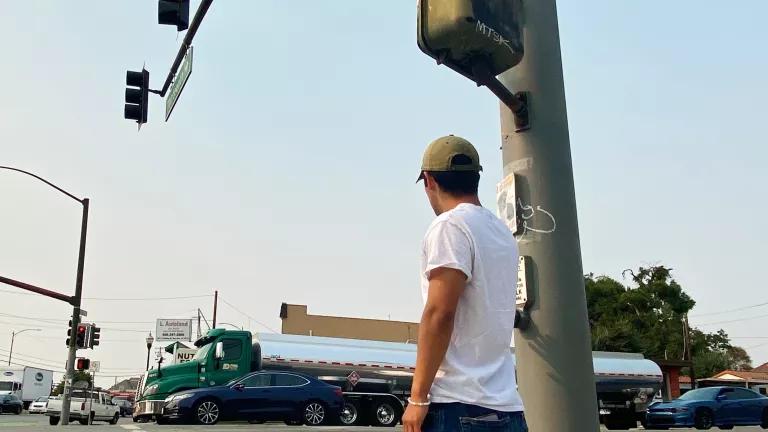Supporting EV Direct Sales or "Let Drivers Buy Clean Cars"
Laws in some states have made it impossible for companies to sell electric vehicles directly to customers.
As the future of transportation relies more on electricity, customers will soon have to ask themselves—"will I be able to buy the car that I want?”
President Biden has shown historic leadership on climate change, and a commitment to reducing pollution from transportation by supporting the transition to non-polluting vehicles. But while federal standards and infrastructure spending are crucial, states will play a key role in ensuring that customers are actually able to purchase electric vehicles.
Many EV companies—such as Tesla, Lucid, and Rivian—are removing the car dealership middleman and directly selling vehicles to customers (also known as “direct sales”). While this generally makes EVs more affordable and makes the experience of buying a car less painful, laws in some states have made it impossible for companies to sell directly to customers. Imagine if your state had a law that prevented you from buying an iPhone at an Apple store, forcing you to drive across state lines to get the phone you want?
Currently, only 22 states allow for all vehicle manufacturers to sell vehicles to customers. Another 11 states allow for only one manufacturer (Tesla) to sell vehicles, often in a limited number of locations throughout the state.

When looking at the growing number of EV companies entering the market, it is clear that allowing only one-manufacturer to sell vehicles directly to customers is not enough. More states need to allow people to buy EVs directly from the manufacturer. These limitations and artificial barriers will ultimately reduce customer choice, prevent certain vehicle manufacturers from entering the market, and stifle EV sales and climate goals. Luckily, several states are considering legislation that would allow for direct sales beyond just one manufacturer.
So why are direct sales so important?
Helping states achieve their climate and air-quality goals
Our rapidly changing climate and need for clean air means that it is imperative for states to support the sale of clean vehicles, as transportation is the largest source of carbon emissions in the U.S. Increasing the number of EVs on the road will help reduce this pollution, as battery EVs emit zero tailpipe emissions.
Meeting these climate and air quality goals means that states need to ramp up sales of these vehicles and cut dependence on outdated systems designed for companies that primarily sell gas guzzling vehicles.
Customer choice
To increase sales of EVs, customers must be able to purchase the EV makes and models that best suit their lifestyle. Therefore, states need to ensure that residents are actually able to purchase these vehicles, and not be limited to only what is available from a traditional dealership. Direct sales allows for different vehicle manufacturers to enter the competitive market and provide these cars to customers easily and effectively.
These efforts won’t stop people from purchasing vehicles from traditional dealerships—instead, they will help to enrich the market and provide customers with choice over vehicle types and how they want to purchase a vehicle.
Keeping sales in state
In 2021, it makes no sense why states would force people to cross state borders to buy the cars that they want. Without direct sales, a driver in New York who wants to purchase a Rivian truck may have to go to Maryland to purchase the vehicle, taking money out of the state and supporting another states economy.
Increasing the number of stores
Some states limit the number of stores a manufacturer can sell vehicles directly to a customer from. This limitation doesn’t account for the growing interest and expansion of the EV market in states, nor does it consider the distance a resident may have to go in state to purchase a specific car or “kick-the-tires” and test drive the vehicle. In New York, for example, Tesla is only permitted to have five stores throughout the whole state, which are currently mainly around New York City. With only one gallery in Western New York, this forces residents who live Upstate to travel hours to purchase the vehicle of their choosing.
Moving forward
For states to increase the sales of EVs, it’s vital that all players in this market are able to equitably participate in the space.
Luckily, several states—such as Michigan, Washington, New Mexico, Nevada, Georgia, Connecticut and New York—are considering legislation that would expand direct sales beyond one manufacturer and allow for unlimited stores for manufacturers. Hopefully, 2021 will be the year that states realize the economic, environmental, and customer protection benefits of getting rid of outdated laws that stifle market growth.




